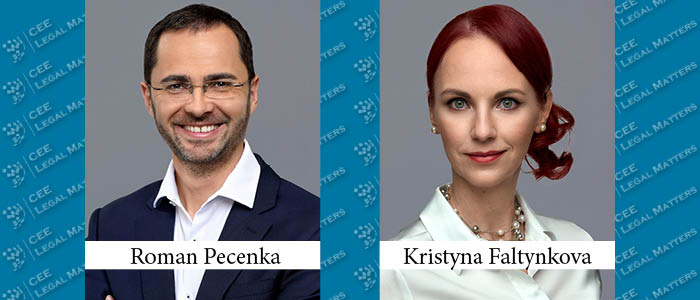The annoying length of the construction permitting process in the Czech Republic became a notoriety. Thanks to this, the prices of new dwelling premises are sky-high, and foreign investors are leaving their projects because they are unable to plan their investment – a striking example of which is the recently abandoned Microsoft project of a new data center in Prague.
The year 2024 was promised to bring a revolution as the completely new Construction Act enters into its full force. Speeding up permitting, digitalizing the process, implementing a one building-one stamp principle, etc. – these were the main proclamations with respect to the new legislation.
An investor is supposed to submit its applications for a building permit electronically via the new Builder’s Portal whereas the architect uploads the underlying project documentation into the interconnected system of Documentation Evidence. The filing of the application launches the process, during which the building office collects all the statements, requirements, and comments from all the involved administrative bodies and other affected persons, and implements them into its building permit delivered electronically to the investor.
Unfortunately, neither the system for the digitalization of the permitting process nor any of the remaining interconnected systems for electronic communication and collection of data exist. The systems are not even under construction because the public tenders for their delivery have been canceled or withdrawn as a result of various appeals or mistakes of the ministry in charge. Therefore, the communication with building offices with respect to new projects to which the new Construction Act already applies (such as highways, etc.) is still the same, and it is very unlikely that any of them will go live in July when the new Construction Act should apply to all types of projects. There are already voices claiming that any proceedings commenced in other than electronic form foreseen by the new Construction Act, including filing hardcopy motions and documentation, should be considered defective.
Further, the implementing regulations are missing. Some of them are at the beginning of the legislative process right now. It means that the content of required project documentation is unknown, the technical requirements for buildings are not set, the forms for electronic filings are missing, etc. Although there are transitional provisions saying that the project documentation drawn up based on the previous regulations could be used until June 2027, the new requirements of the new Construction Act still need to be met. Thus, the old project documentation might not be in the required format for the digital permitting process or be affected by another, yet unknown, insufficiency, since the requirements of the previous regulations have to be disregarded if they are in contradiction with the new Construction Act – one must not be a lawyer to imagine the uncertainty created by this mess.
The one building-one stamp principle is not respected either, as there are many exemptions that oblige the investor to get binding statements from certain administrative bodies; in particular, the environmental protection authorities have their own (brand new) type of joint statement, the issuance of which is governed by its own new legislation.
Finally, the deadlines for issuance of building permits are extended to double for the year 2024. In the next years, there is still no real consequence in case the deadline for issuance of the permit is not met by the building office, and the permit is not considered as issued after the lapse of the deadline.
To sum it up, the entire market is much more anxious than in the past, as the new system is not functional, the rules are unclear, and nobody is sure what regulation should be applied and to what extent. At the same time, the clerks from the building offices are not ready to apply the new Construction Act, and some of them are considering quitting due to the more-than-uncertain situation and worries it will cause additional strain on an already stretched thin capacity of their office. It seems that the entire new construction legislation is one step forward in theory and two steps back in practice.
By Roman Pecenka, Partner, and Kristyna Faltynkova, Attorney, PRK Partners
This article was originally published in Issue 11.2 of the CEE Legal Matters Magazine. If you would like to receive a hard copy of the magazine, you can subscribe here.




